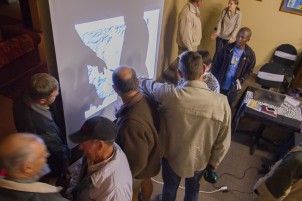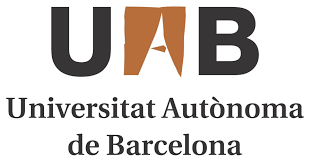
By Franz Fuls.
As a developing country, the South African government has identified coal as a primary energy source. It grants permission to extract minerals through mining rights. Xstrata recently sold their Highveld coal reserves to Msobo Coal, and Msobo now intends to prospect at Chrissiesmeer, Mpumalanga.
Chrissiesmeer is a large wetland area. It is home to various frog species, insects, birds, small game and their predators. This includes various endangered species such as cranes and allegedly some newly discovered endemic species of fish and frogs.
Traditionally this is cattle, sheep and maize farming country with intergenerational farming. Although some of the farmers (current and historic) may have been uninformed regards conservation, they did understand its importance. The wetlands have remained relatively untouched. In the past two decades, many farmers moved away from commercial farming and started focusing on tourism. Through land reforms, a few emerging black farmers have also been established in the area. It seems that with the support of the established farming community, they stand a fair chance of success – a rarity in South African Land Reform.
The Chrissiesmeer wetlands area consists of more than 63000 hectares with more than 64 landowners. That includes the state.
Xstrata has previously been granted prospecting rights in the Western side of the wetlands. Since then, the Minister of the Department of Mineral Resources, Susan Shabangu has published her intent to place a moratorium on mining and industry in the greater Chrissiesmeer wetlands area, allegedly as part of the process of declaring it a RAMSAR site. RAMSAR refers to the RAMSAR Convention on Wetlands, an intergovernmental treaty on the protection of wetlands of which South Africa is a contracting party. Unfortunately no further progress could be made on the RAMSAR application to date.
In 2012, Xstrata sold their coal reserves on the Mpumalanga Highveld to Msobo Coal. Msobo coal is now faced with a problem: They need the blessing of Minister Susan Shabangu to transfer the prospecting rights for the Harwar area (North-Western part of the wetlands) from Xstrata and they have limited time to do so since the Xstrata prospecting rights are about to expire. It seems that Msobo made a bad commercial deal with Xstrata, which has the potential to create large losses for Msobo and potential penalties for Xstrata
In 2010, even before Msobo came onto the scene, the landowners of the wetlands area started taking collective steps to declare the Chrissiesmeer wetlands a protected environment under the Mpumalanga Biodiversity Stewardship Programme. This process is driven by the Mpumalanga Tourism and Parks Agency with the Endangered Wildlife Trust and Birdlife South Africa playing a supporting role. Much progress has been made as the majority of landowners have already become involved. The Provincial Member of the Executive Committee has recently formally approved the Intent to declare the Chrissiesmeer Protected Environment as part of the National Plan for tourism and protected environments. It is expected that the process will be completed by the end of 2013, which would result in a cross—(farm)border environmental conservation plan and a ban on mining and heavy industry in the area.
Brian Morris of the Mpumalanga Tourism and Parks Agency explains this initiative during a landowners meeting on 25 February 2013: “The declaration of Chrissiesmeer Protected Environment will ensure that the area is protected for future and current generations. Linked to the protection of the area is the need for a management plan which will ensure a holistic and integrated approach to management of the area by landowners. The ultimate goal is to ensure that livestock farming and agriculture can co-exist with biodiversity conservation and the conservation of the unique pans and wetlands of the area. It is also envisaged that tourism will become a major driver for job creation within the area of the protected environment.”
Historically, the farmers of Chrissiesmeer have utilised grasslands for grazing and crop production, but left enough space undisturbed to maintain a good level of biodiversity in the area.
If coal mining is allowed to encroach on the area, the carrying capacity of the land will be completely destroyed for the life of the mine, with a marginal restoration post mining. Rehabilitation can never reconstruct a carrying capacity matching the original state of an area. Capacity will also be reduced through the inevitable introduction of invader plant species like eucalyptus and wattle that thrive on disturbed land, with the resulting decrease in biodiversity.
The Chrissiesmeer Protected Environment is an example of co-management. Government, in the form of the provincial Tourism and Parks Agency amongst others, non-profit organizations like Birdlife South Africa, and the Endangered Wildlife Trust, landowners including multi-generational farmers and emerging farmers, owners of guest houses and properties focused on tourism, as well as the local previously disadvantaged community will all be involved in this co-management initiative. Possession will not be collective, but the Protected Area will be co-managed by the involved parties by following a management plan agreed to by all, focusing on responsible stewardship of the environment and with benefit to the land owners and the local community in a sustainable long term plan. The management plan will be reviewed every five years.
The greatest challenge for the collective will arguably be to prove to the local impoverished community that this co-management strategy has benefit for them, greater than the few isolated and temporary job creation opportunities that will be realised through coal mining.
According to James Duncan of Russel and Associates, spokesperson for Msobo Coal, the company is not willing to confirm any findings they have already made of rare species during the current Environmental Impact Assessment. In response to whether Msobo Coal will support the initiative he responded as follows: “We don’t know enough about this as yet to have formulated a position. We’re seeking the additional information we need in order to do so”.
It remains unclear whether Msobo Coal will support the plans for the protected area. If they successfully oppose it, the past three years of hard work to declare the area protected will become redundant and the whole wetlands area will become vulnerable to exploitation in search of finite coal resources.





Pingback: Choosing between coal or wetlands in Chrissiesmeer | Franz Fuls
Pingback: Objection – Msobo Coal Mining Application | Franz Fuls
Pingback: Support the Chrissiesmeer Protected Environment | Franz Fuls
I would like to support the proposed mining right for Msobo coal because as a young community member I stronly believe that Msobo Coal will bring significant changes the the economic struggle within the community.I am currently employed by the company as a junior Engineer In-Training on temporary basis and if the company is denied the right to mine in chrissiesmeer that will halt the opportunity to further my career with the company and I won’t be the only one affected by this decision but many will see job losses and the escalation of poverty and crime in our community.People we need to open our minds and vividly imagine the future without mines in our province,now let congregate our selves in finding a common goal because ”Divided We Fall and United We Stand”
Dear Xolani,
I agree with you that the future of current employees of Msobo is important, and rightfully so. Therefore I can respect your opinion. To achieve unity we must consider responsibility and accountability towards ourselves, our fellow human beings, and our children.
In a recent PPP meeting Msobo coal admitted that the new mine will not result in any huge job creation opportunities. It will merely allow current employees to retain their jobs. New jobs will come when old employees retire. Any benefit to the Chrissiesmeer community will not come in the form of massive employment.
There is always a risk that a wetland will be destroyed beyond repair when it is mined. That reduces available drinking water in a region.
My opinion is that we must not only consider our current prosperity, but also our future. Fact is, for survival humans need water more than coal. Why risk a permanent water supply in exchange for a temporary opportunity to make money?
We must act today in a way that we can justify to our children tomorrow. Our children will hold us accountable for the actions we take today.
Dear Franz
I agree with you when you say we need to consider our current prosperity,but also our future,that is 100% true my brother but you know what?God created both coal and water for survival, so do you think he didn’t consider the effects of mining in wet lands?I don’t think so, God carefully planned everything so you need not to be afraid for the future because we all don’t know God’s will.
In reference to what Xolani commented-how do you even begin to reason with this? And the majority of citizens that have voting rights offer this extremely limited insight. The future looks dim.
Good luck with your efforts to preserve this natural resource.
Thank you Suzie.